Search
Search Results
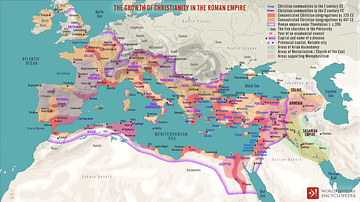
Article
Rome's Response to the Spread of Christianity
During the 1st century CE, a sect of Jews in Jerusalem claimed that their teacher, Jesus of Nazareth, was the 'messiah' of Israel. 'Messiah' meant 'anointed one', or someone chosen by the God of Israel to lead when God would intervene in...
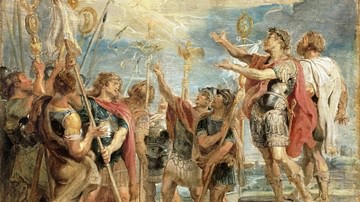
Article
Constantine’s Conversion to Christianity
Constantine I (Flavius Valerius Constantinus) was Roman emperor from 306-337 CE and is known to history as Constantine the Great for his conversion to Christianity in 312 CE and his subsequent Christianization of the Roman Empire. His conversion...
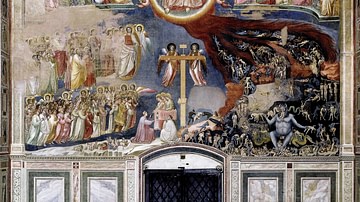
Article
Angels in Christianity
Angels in Christianity act as messengers of God, bring good news, and help believers. Their role developed from the function of angels in ancient Judaism but continued to evolve as Christianity became a separate religion. Jewish & Zoroastrian...
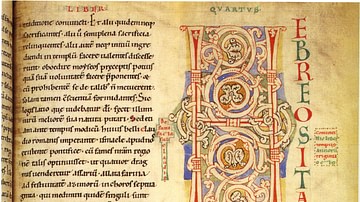
Article
Josephus on Christianity
Titus Flavius Josephus (36-100 CE), the Jewish historian, is the main source for understanding Second Temple Judaism in the 1st century CE. In the last decades of the 1st century CE, he wrote The Jewish War, the Antiquities of the Jews, Against...

Article
Ancient Christianity’s Effect on Society & Gender Roles
Christianity began as a sect of Judaism in Judea in the 1st century CE and spread to the cities of the Eastern Roman Empire and beyond. In these cities, non-Jews, Gentiles, wanted to join the movement, and these Gentile-Christians soon outnumbered...
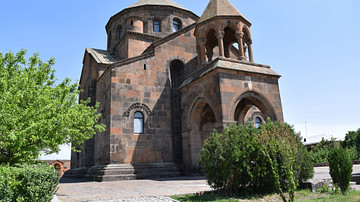
Article
The Differences Between Byzantine & Armenian Christianity
Although both the Byzantines and the Armenians were Christian, the types of Christianity they professed had important differences that led to a lack of recognition and tensions between the two groups and a considerable part of their relationship...

Article
Pliny the Younger on Christianity
Pliny the Younger's (61-112 CE) letter (Epistulae X.96) to Roman Emperor Trajan (r. 98-117 CE) is one of our earliest sources on Christianity from an outsider's point of view. It highlights the Christian movement's impact on the old Roman...

Article
The Early Christianization of Armenia
The Christianization of Armenia began with the work of Syrian apostles from the 1st century CE and was boosted in the early 4th century CE by such figures as Saint Gregory the Illuminator, who converted the Armenian king and spread the gospel...
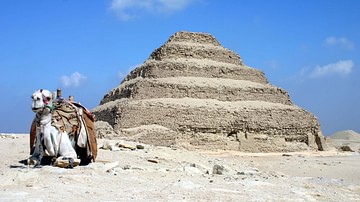
Definition
Early Dynastic Period In Egypt
The Early Dynastic Period in Egypt (c. 3150 - c. 2613 BCE) is the beginning of the historical era of the country during which the regions of Upper Egypt (south) and Lower Egypt (north) were united as one country under a centralized government...
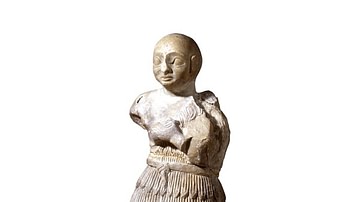
Definition
Early Dynastic Period (Mesopotamia)
The Early Dynastic Period of Mesopotamia is the modern-day archaeological term for the era in Mesopotamian history – 2900-2334 BCE – during which some of the most significant cultural advances were made including the rise of the cities, the...